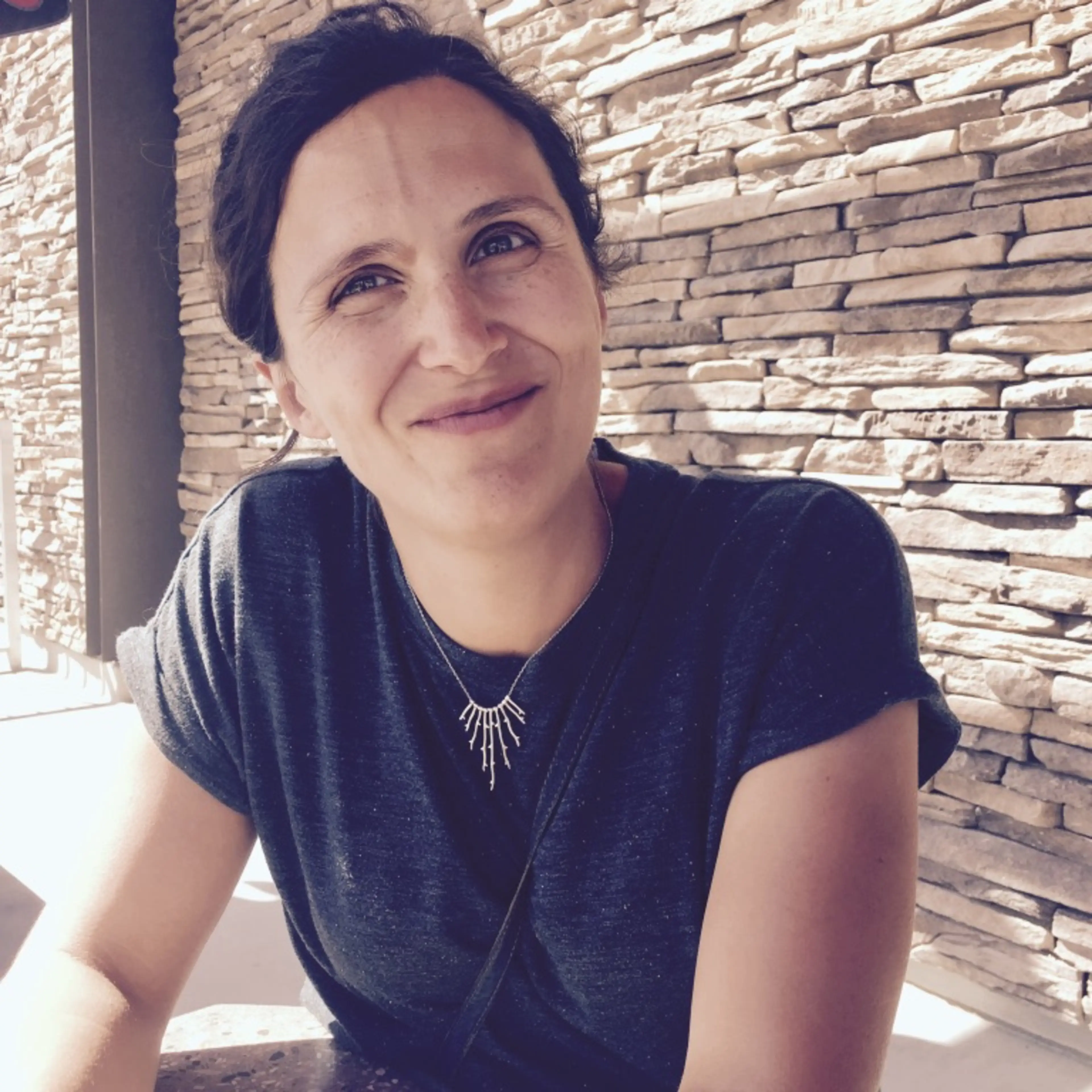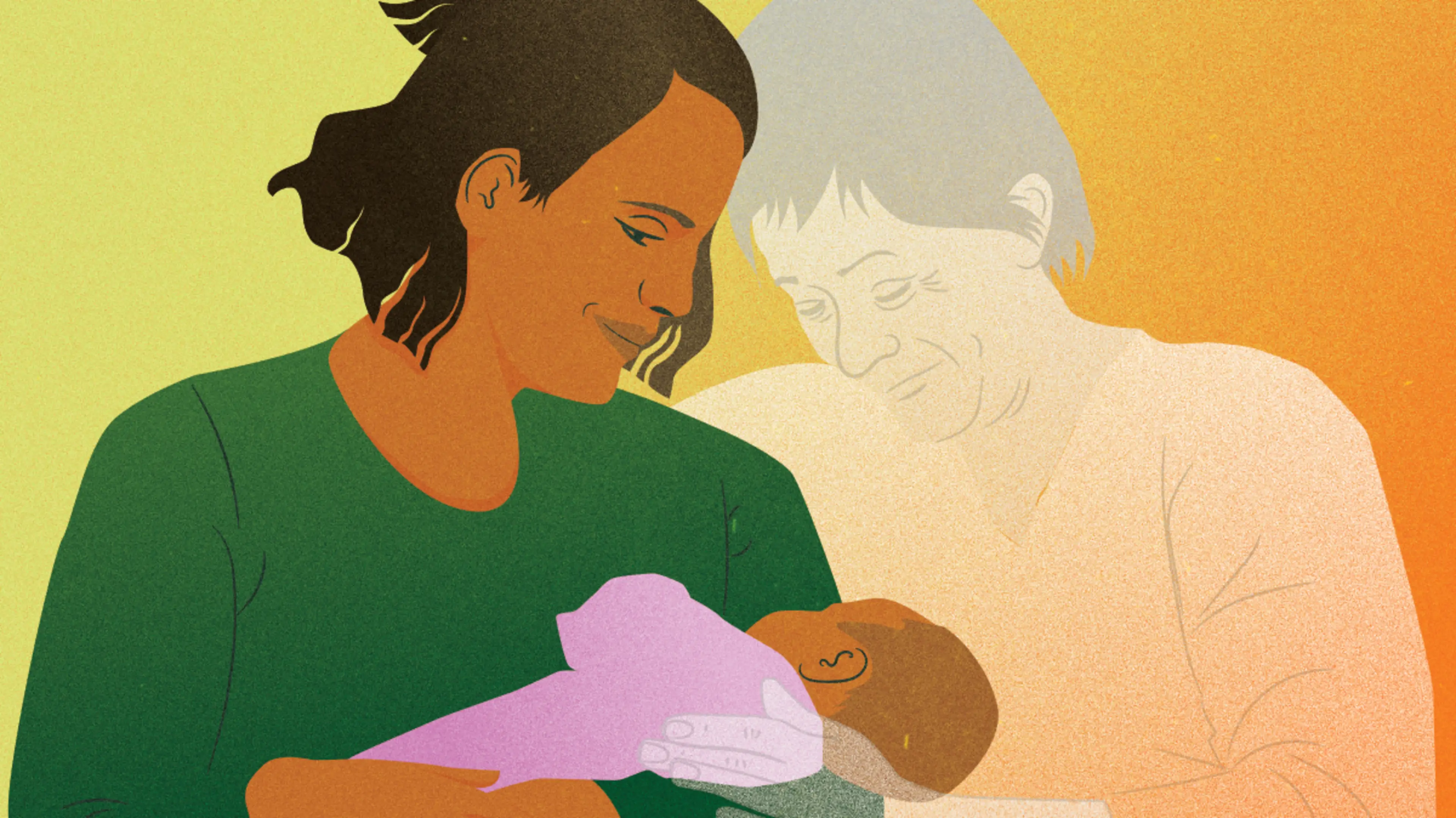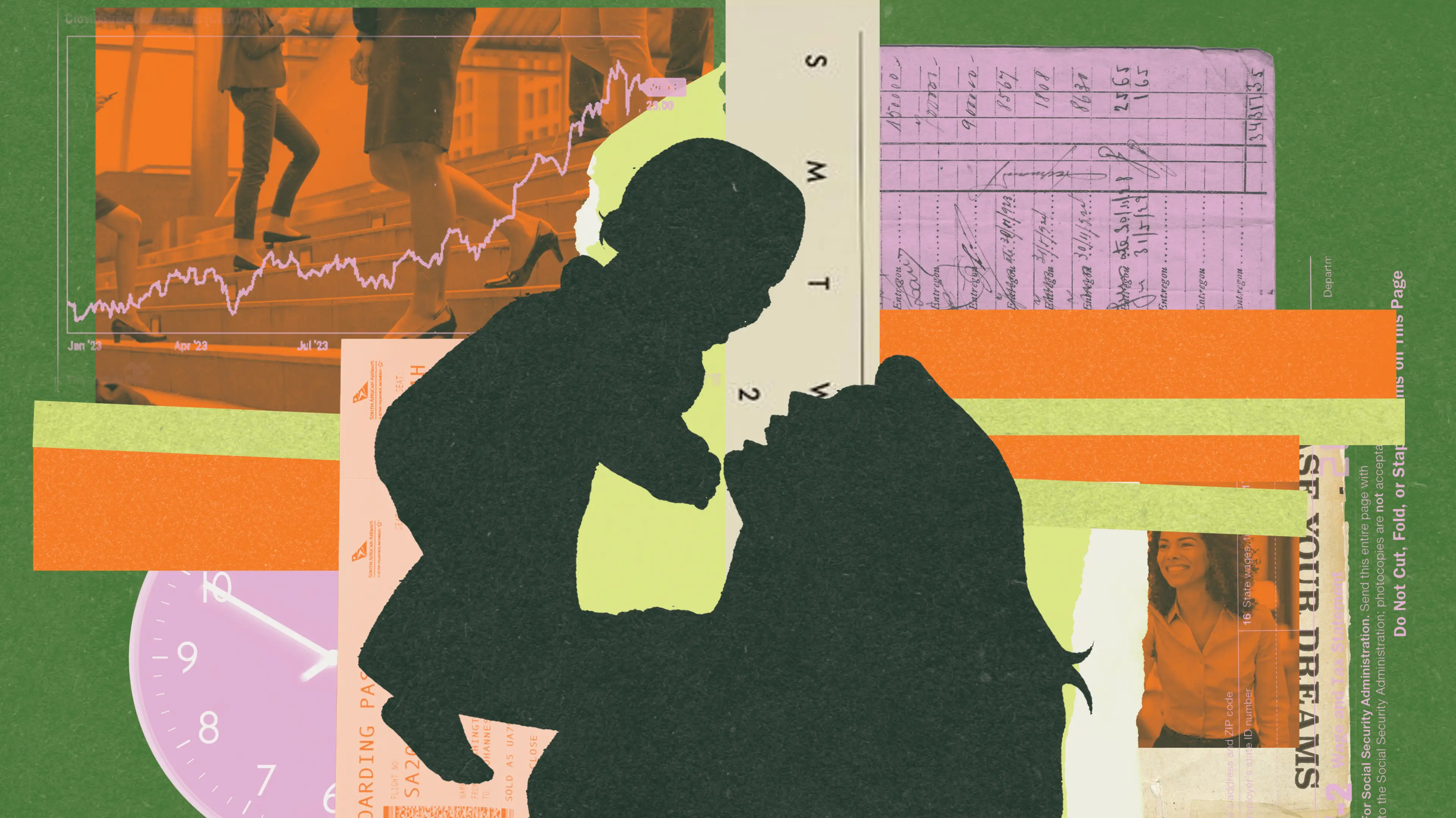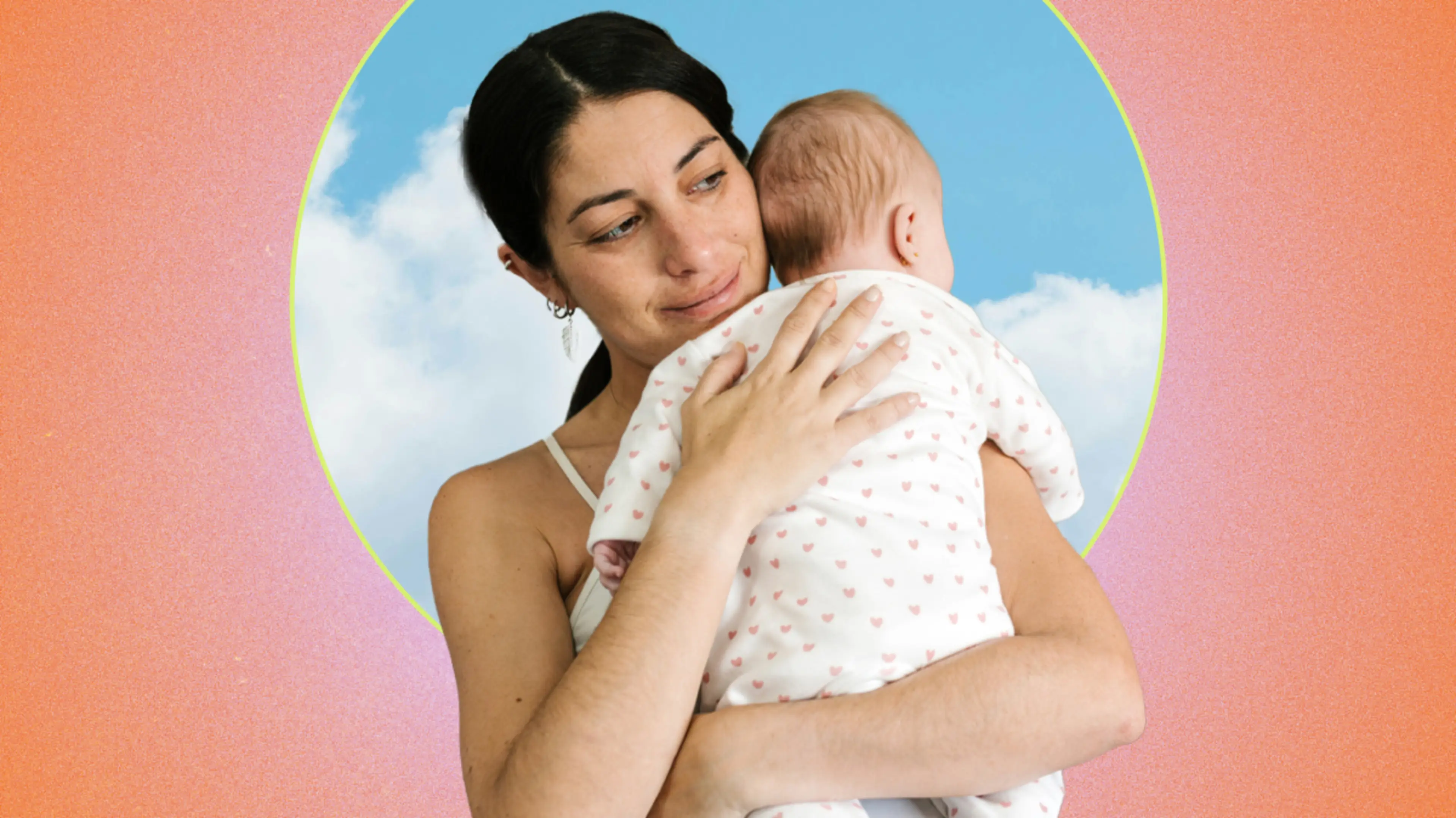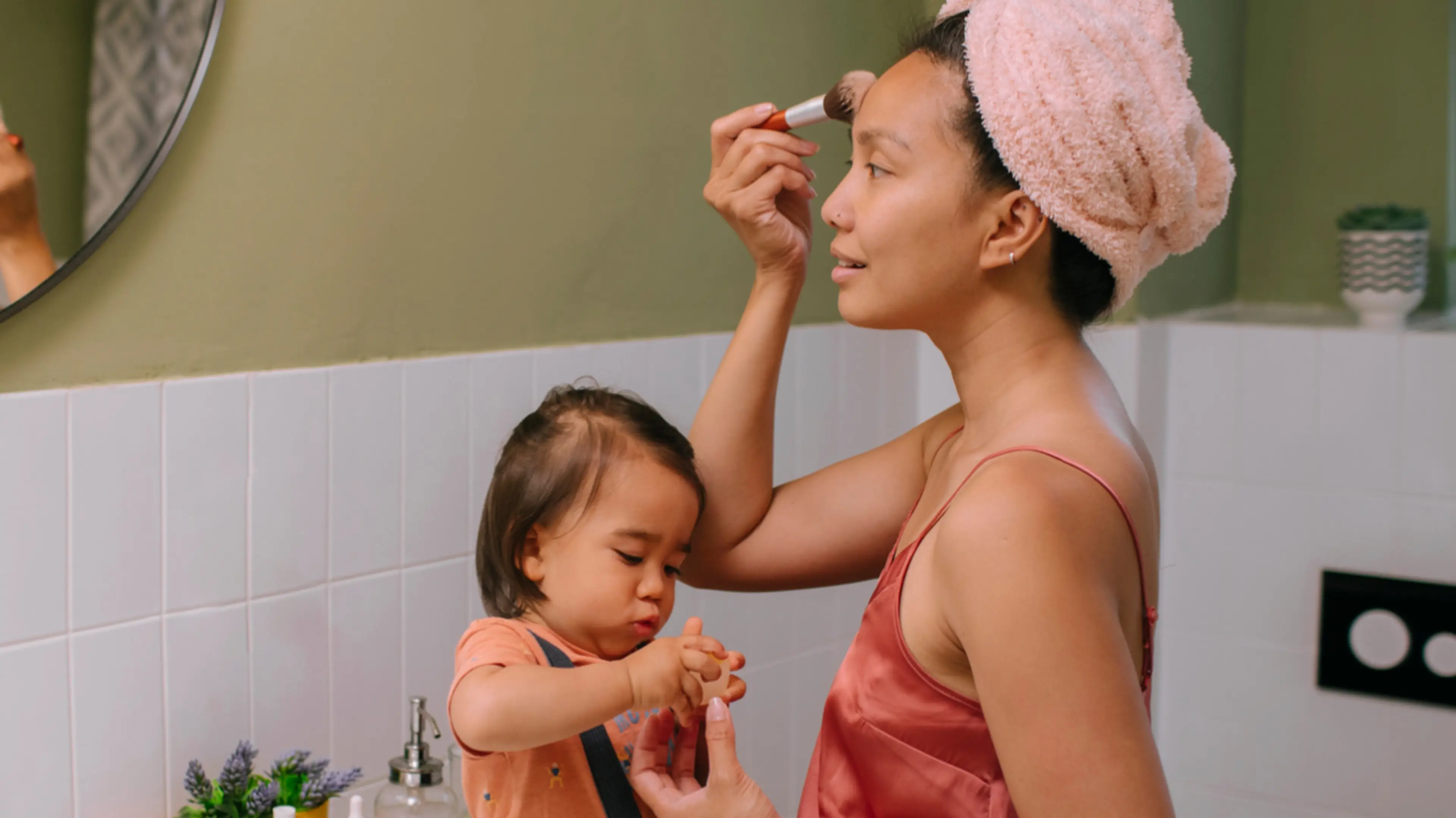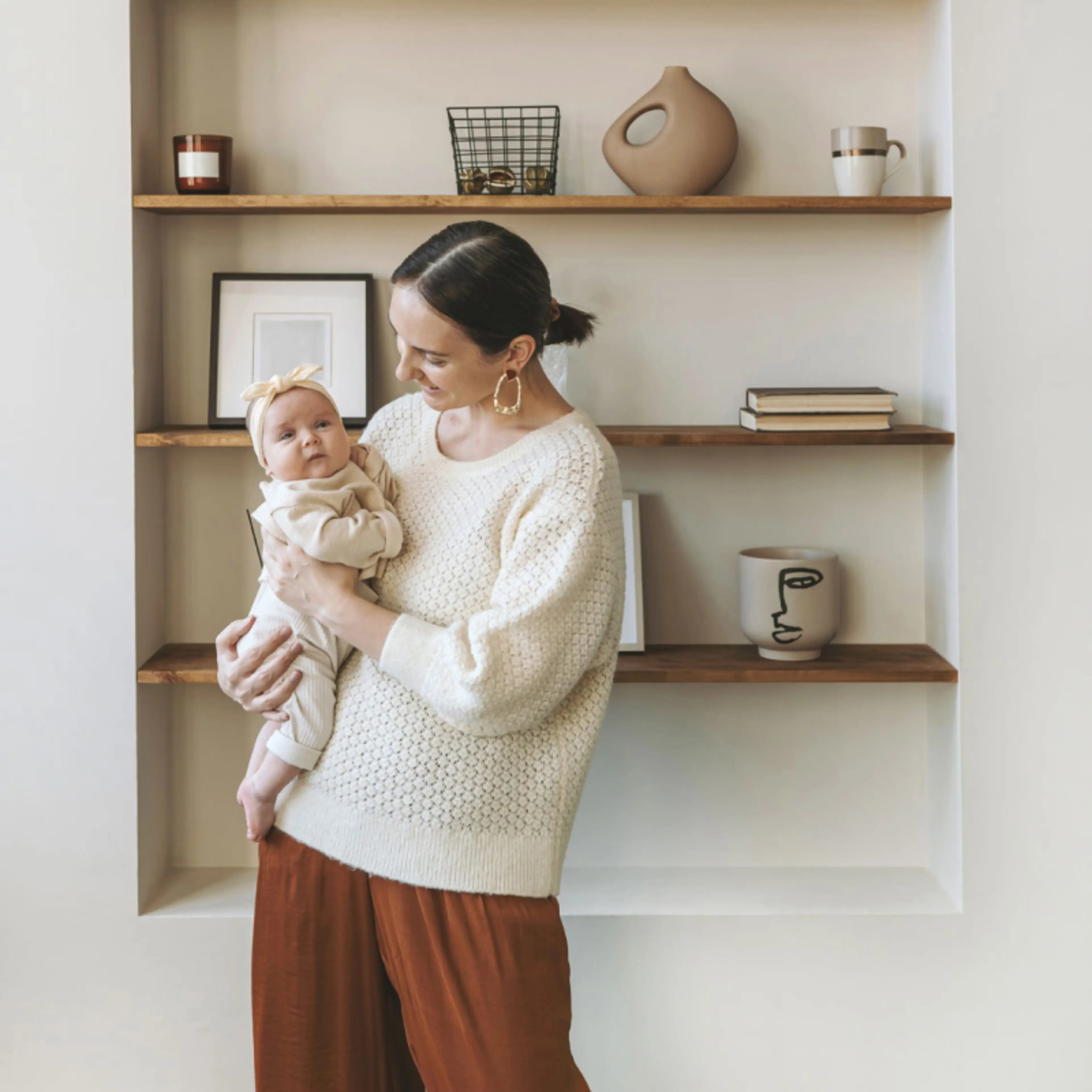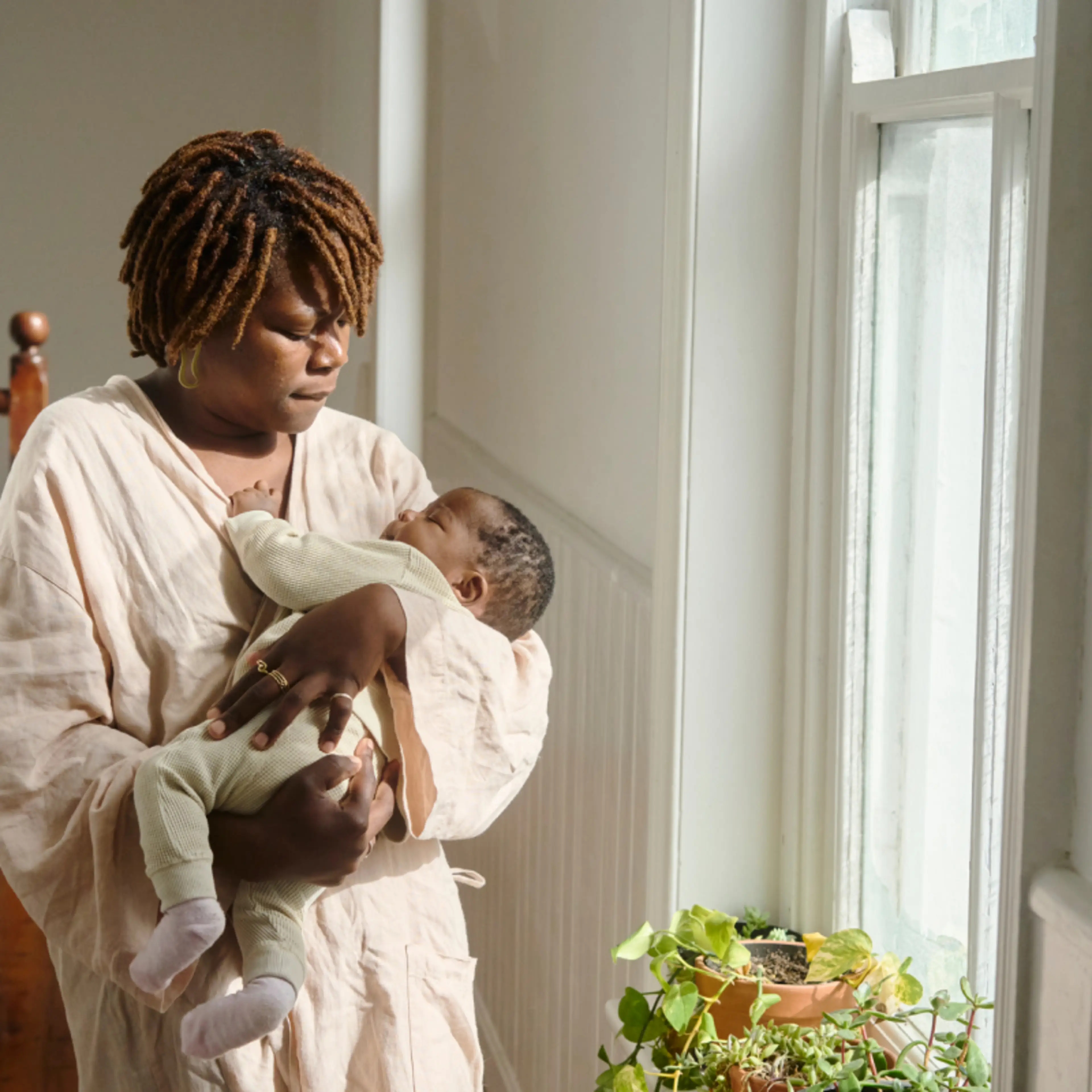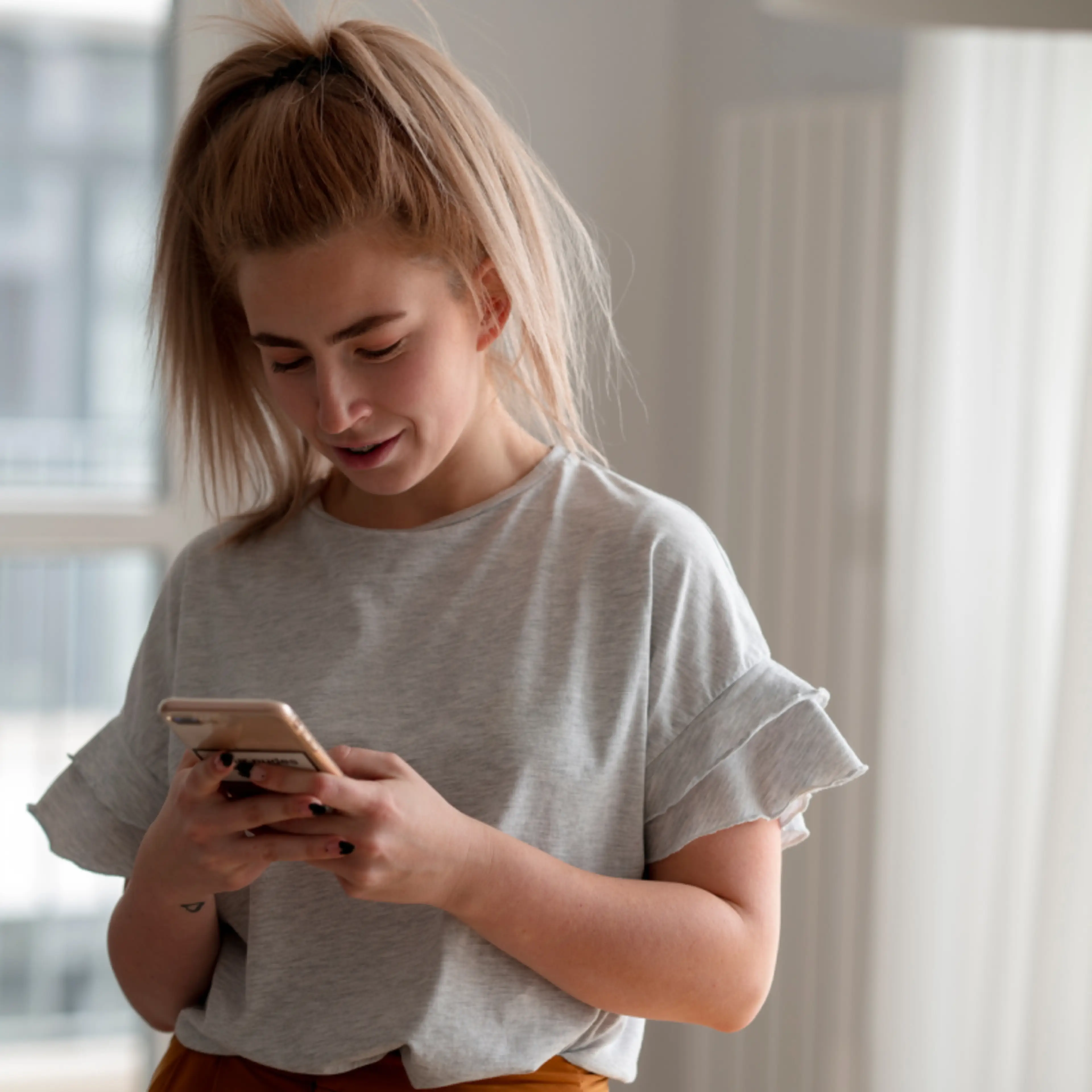I thought I had mourned the loss of my mother—until I got pregnant.
While my friends were lamenting their moms’ over-eagerness, their planned trips to arrive in time for the baby, to stay and help, to cook and hold—I sat cross-legged on our apartment floor and hung tiny dresses on hangers, alone.
It would have been easier, this absence, if my mother weren’t still very much alive.
Since I was young, she has been a mystery. When I was a kid, she often took to her bed, or the couch, one arm slung over her eyes, “not to be disturbed.” Women of her generation were progressive enough to have heard of depression, but not quite liberated enough to admit to it. Her disappearances were bookended by afternoons spent watching her play her guitar, long chestnut hair falling over one eye. She was wistful and beautiful and smart—so smart, always the first to get the joke—and I loved her like I was her.
When I got older, without either of us noticing, we quietly switched places. I spent my high school days worried over her wellbeing. I rushed home when pink slips came to my homeroom: your mom needs you. Your mom is sick.
She is still ill, all these years later, with many things. Some of them diagnosed, and some not. These illnesses have shrunk her life to the size of her one-bedroom apartment. When she’s at her best she makes crafts and dreams oversized dreams about when she is “better.” At her worst she travels down a rabbit hole that keeps her away for weeks and months and years.
I imagine our separation is hard for her, too. I imagine that she wishes things could be different, but in all these years she’s never been able to put words to that ache if she feels it.
When I got pregnant with my daughter, my first child, I longed for her again in a way I hadn’t for years. I thought I had forgiven and adapted and settled into our new normal: a pleasant but remote kind of knowing, but something about pregnancy made old wounds tender.
I remember visiting her for the holidays that year of my first pregnancy, a few months before my due date. I put on my favorite maternity shirt and contained my curls in hopeful braids. I was giddy to show her my belly. This was the moment, right? The one everyone talks about? She would see me, her youngest child, waddling and pregnant, and it would move her. Would she cry? Would she want to feel the baby’s kicks? Would she tell me I was glowing?
We knocked on the door of her apartment, the hallway a sea of beige and glaring exit signs. My husband kept one protective hand on the small of my back. Maybe she smiled when she opened the door, or her eyes grazed my belly, but other than that there was no fuss made. Afterwards, I sat in our rental car and cried for everything I knew she’d never say. Or do. Or want.
To lose a parent in death is a tragedy I don’t yet know. I have friends whose mothers have died, much too young. My loss doesn’t even hold a candle to theirs—I’m almost embarrassed to lump us in as fellows in grief.
But for all of us, no matter how we’ve lost our own moms, the births of our children are laced with a kind of sorrow we can’t quite put words to.
If you find yourself in this place—mothering without a mother—I’m here to tell you that there can be beauty in the loss. There are ways to build communities of support and love to fill the empty spot she has left behind.
Gather other women around you. They don’t even have to be maternal figures. For me, my little tribe of female friends have been the ones to take the calls that in another life would have gone to my mom. Find the women you can talk to about aches and pains and rashes and fevers and pacifiers and sleep schedules. Find the women who aren’t afraid to hash out anxieties and overwhelm. Lean on stepmothers, mothers-in-law, any of the women in your life who have been through the fire and have some kindling to hand over the fence.
Mother the both of you. The more present you are with your kids, the more you can soften and bandage your own raw spots. The more you love them, the more you show up, the more compassionate and less grudging you are about all of their mistakes and misdeeds, the more you start to remember that you, too, deserve that kind of love. And in giving it to them, you give it back to yourself. Hold them like she would hold you. Hear them like she would hear you.
Pay for help. Often it’s the maternal grandmother who shows up, Mary Poppins-like, to clean and cook and baby-watch in those early days. If this character is absent in the movie of your life, hire a replacement. Even a few hours of childcare or house care when you’re newly postpartum can make a huge difference. Find someone you can hand a baby off to without any feelings of imposition. You need it. Don’t skimp on it.
Embrace the mystery. I used to think being without a maternal presence would mean I would be without a map when it came to raising my own kids. If you’re worried that you are missing an essential role model, just know that your children will teach you everything you need to know about how to be their mom. You might have to listen harder, the woods you’re navigating might be a little darker, but all the wisdom is there for the taking.
You’re not without a map, you’re just the mapmaker.
Having kids shines a spotlight on what connects us. Our relationships with our parents come into sharp relief and act as either guideposts or warning signs. The trick is to let all of it soften you and move you closer to what you love, instead of calcifying parts of your heart. If you’re standing in the heartbreak of having lost a mom, know that you’re not alone. We are out there, trying our best to love so well that we can raise our kids and ourselves in the process.
We make it so complicated, and mothers bear the brunt of so much blame, but the art of mothering is actually pretty simple. Just show up. Stay put. Be an unshakeable shelter so that your kids can push against the walls with all their big feelings and never have to worry about the whole thing caving in.
A therapist once told me that the picture of the ideal parent/child bond is that the child should be able to run off but look back and always see their parent standing there. That is what secure attachment feels like.
When my kids look back, they see me standing there. I have my mom to thank for teaching me the importance of that.
